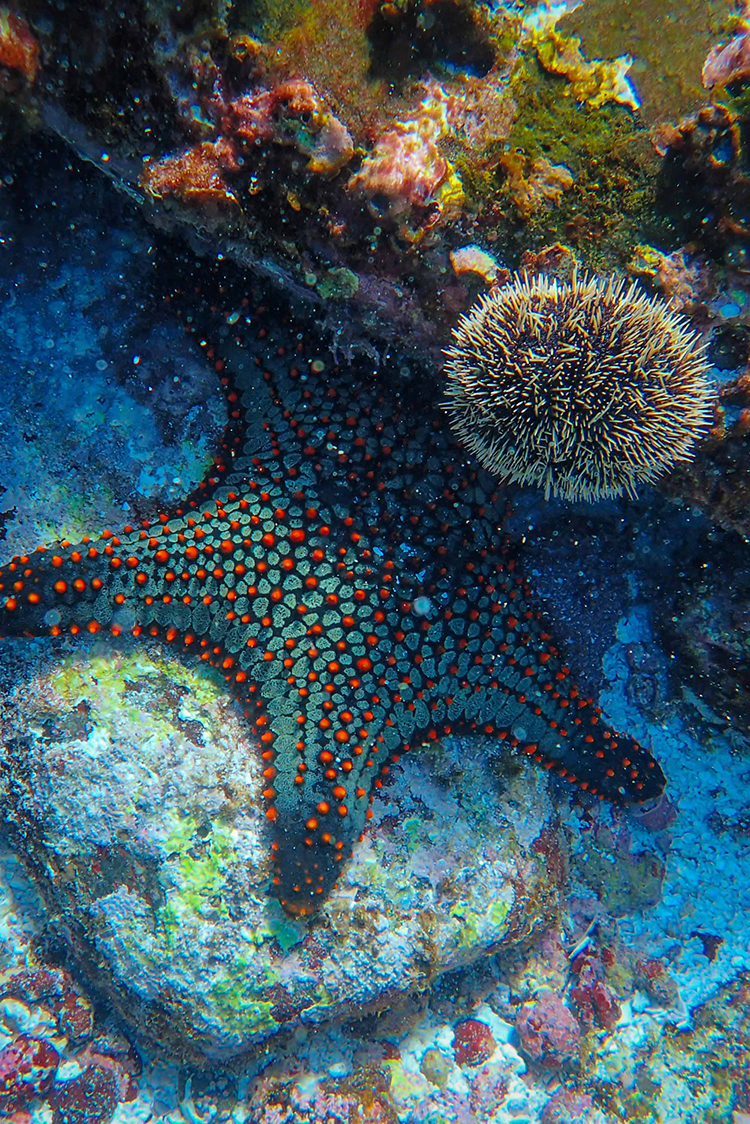


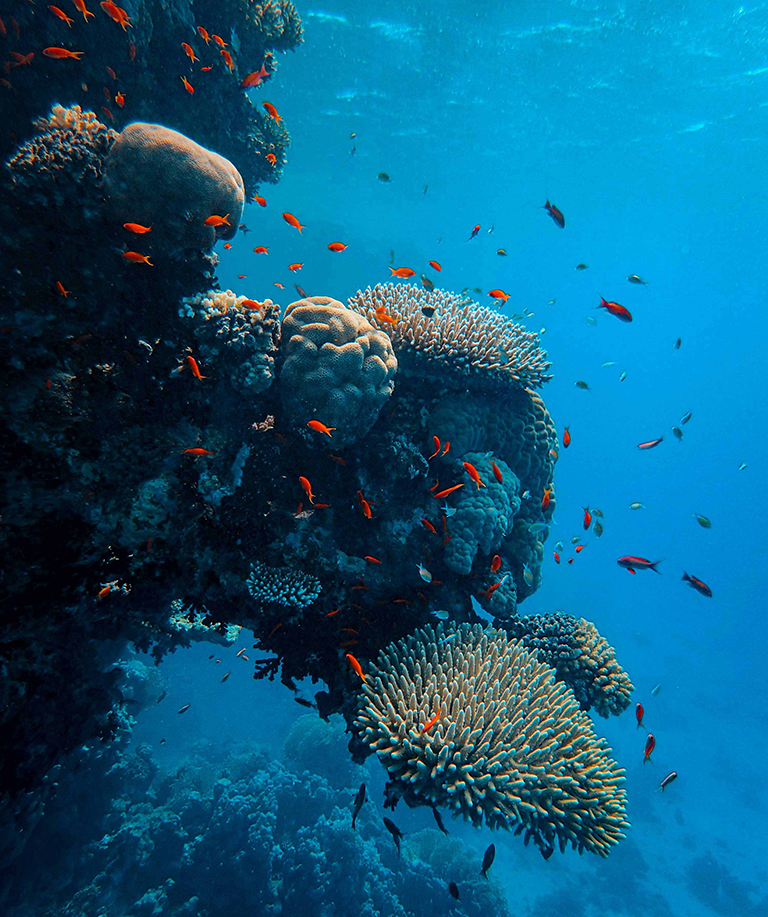
Environmental Projects
After nineteen years of experience in recovering natural heritage, in 2021 the foundation created Santander for the Seas, an annual call for proposals that aim to preserve marine biodiversity in Spanish waters.
The proposed initiatives must focus on areas and species listed as endangered or at risk of extinction in Spain’s official national or regional catalogues.
A committee, made up of Fundación Banco Santander representatives and environmental experts, selects three two-year projects based on their innovativeness, technical quality, sustainability and replicability, among other criteria.
The beneficiaries of this third edition were Fundación Ecoalf, Tursiops and Fundación Blue Life. The foundation also continued to support the organisations selected in the programme’s second year: Fundación Naturaleza y Hombre, CEMMA and Asociación Vellmarí.
The following pages provide a brief description of the initiatives launched in 2023 and a list of all projects that were still in progress during the same period.
Spain's eastern seaboard
The initiative submitted by Fundación Ecoalf entails cleaning up and reusing waste accumulated in protected areas of the Mediterranean Sea by establishing an alliance of fishers, scientists, industry and civil society.
Plastics captured by fishing vessels are treated at recycling plants and made useful to different industries. PET, for instance, is turned into thread which Ecoalf’s sustainable fashion label will use to make garments and accessories.
The project also uses geolocation devices to study marine debris and determine its traceability, typology and interaction with ocean currents. The results will be shared in national and international scientific forums.
Additionally, Ecoalf organises training sessions for fishers and different activities at schools to raise awareness of how debris negatively affects the marine ecosystem and the importance of the circular economy.
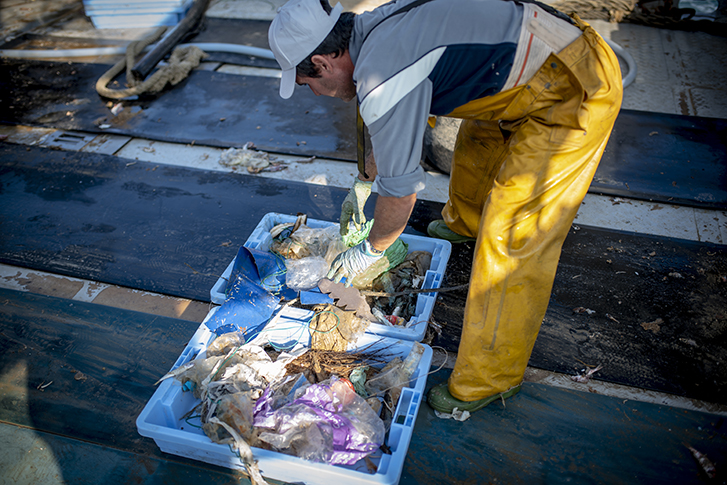
Menorca, Balearic Islands
Tursiops launched a project to preserve the sperm whale in the Mediterranean. The goal is to define the boundaries of a recently discovered breeding ground north of Menorca and petition the pertinent authorities to protect it in order to shield this species from the greatest threats to its survival: vessel strikes and underwater noise pollution caused by ocean traffic.
Cutting-edge instruments and methods—including hydrophones, drones, transdermal tags to track specimens via satellite, and the automatic identification system (AIS) to analyse vessel movement data—are used to collect the necessary data in the field.
The initiative also aims to get shipping companies involved in safeguarding the protected waters and to conduct a social awareness campaign that will encourage responsible nautical practices in a high-density maritime traffic area.
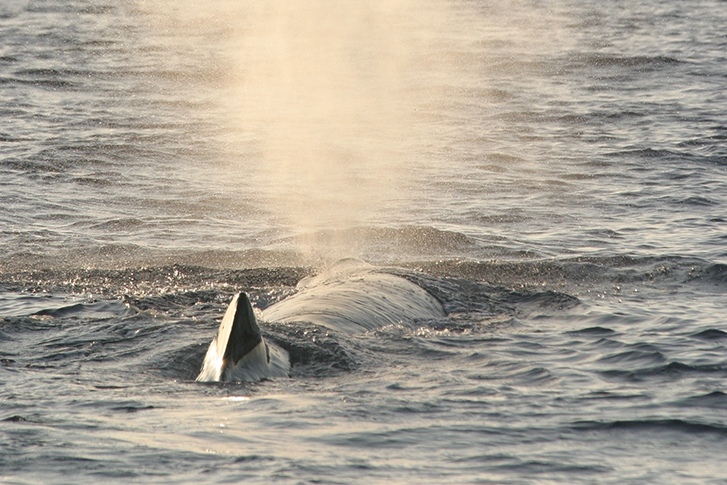
Ibiza, Balearic Islands
In 2023, Fundación Blue Life began working to protect and recover the biodiversity of Ibiza’s marine habitats.
Its primary courses of action consist in restoring the Posidonia oceanica or Neptune grass community and collecting data on the distribution, reproduction patterns and status of uncatalogued populations of the violescent sea-whip (Paramuricea clavata) and white gorgonian (Eunicella singularis). This information will be used to devise a suitable long-term conservation strategy for the species.
Different environmental education activities (talks, lectures and seabed cleanups) have also been designed for schools and for the island’s yacht and diving clubs.
Finally, Fundación Blue Life will try to get the tourism industry and pertinent authorities involved in designing and implementing a pilot programme of sustainable tourism based on activities related to caring for marine ecosystems.
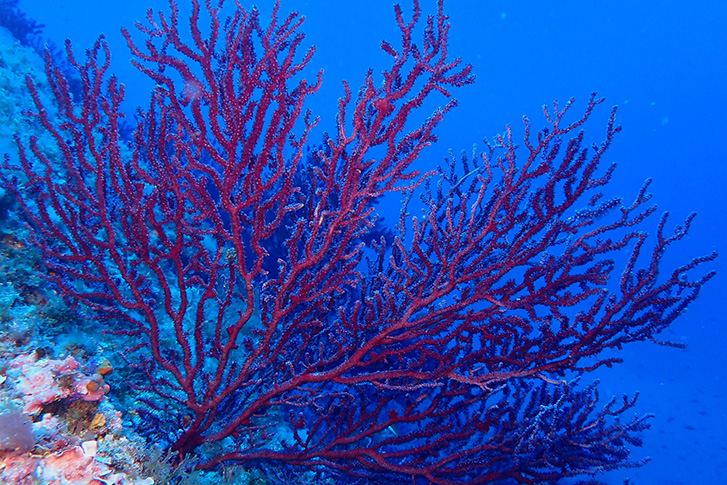
| Year begun | Project | Place | Collaborating entity |
|---|---|---|---|
| 2022 | 2030 Santander Bay | Santander, Cantabria | Fundación Naturaleza Y Hombre |
| Friendship-Orcas | Galicia, Asturias, Cantabria, Basque Country and Andalusia | CEMMA | |
| Western Mediterranean Coral Habitats | Ibiza, Balearic Islands | Asociación Vellmarí | |
| 2023 | Upcycling the Ocean | Spain's eastern seaboard | Fundación Ecoalf |
| Moby Mummy. Delimiting a sperm whale breeding ground | Menorca, Balearic Islands | Tursiops | |
| Restoration of Neptune grass meadows and conservation of marine ecosystems in the Mediterranean | Ibiza, Balearic Islands | Fundación Blue Life |
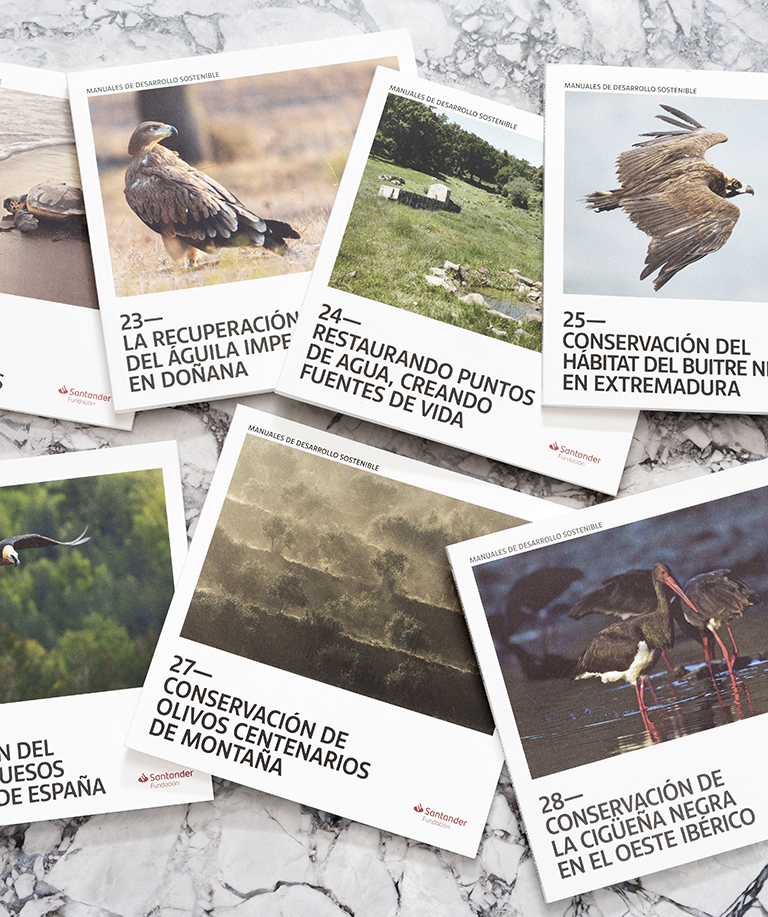
Sustainable Development Handbooks
Fundación Banco Santander publishes sustainable development handbooks to share information about the projects that are part of its environmental programme. In these handbooks, the organisations responsible for doing the conservation work provide detailed descriptions of the phases and methods used so that similar projects can benefit from their experience.
Digital copies of all the handbooks are available on the foundation’s website. A limited number of hard copies are also printed and distributed free of charge to interested organisations, institutions and individuals upon request.
In this handbook, members of the Brinzal association explain the vital role of pollinators, the causes and consequences of their decline, and specific actions taken in green zones of the city of Madrid as part of the Misión Polinizadores project. These actions included creating biodiversity islands, advising local authorities and developing a social awareness campaign.
In the final chapter, which studies populations of urban pollinators, the Biodiversity Monitoring Group from the Complutense University of Madrid gives a step-by-step explanation of how to set up an insect monitoring programme.
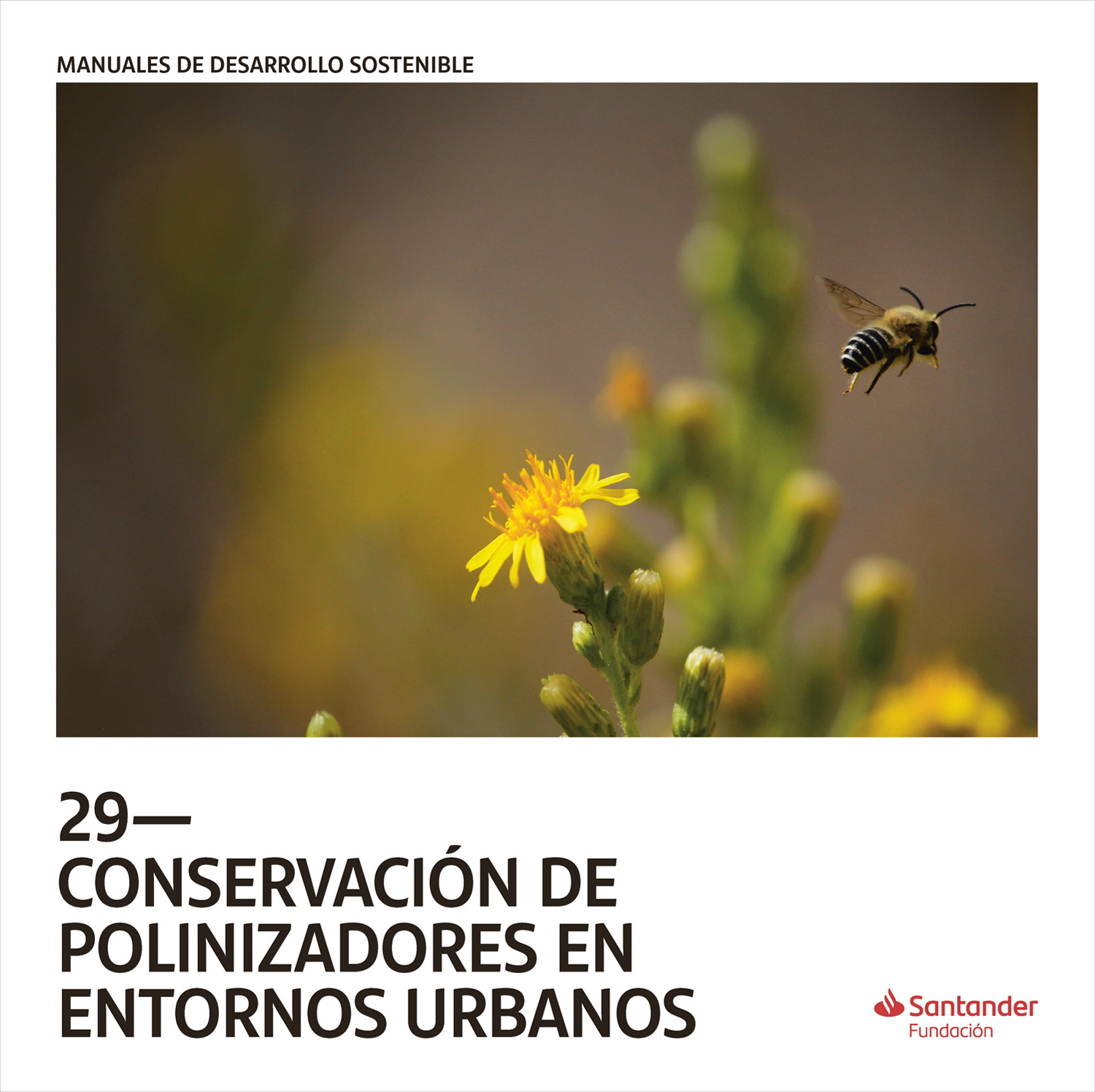
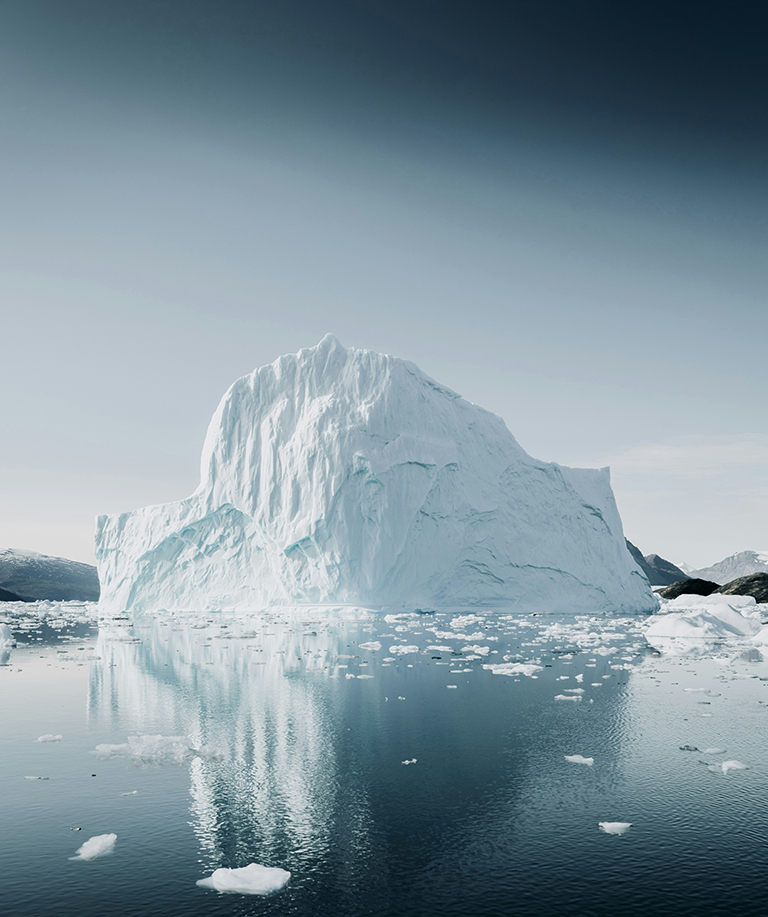
Environmental Footprint
Fundación Banco Santander measures the annual environmental impact of its activity in order to reduce its waste and emissions.
| Water (m3) | 246 |
| Water (m3/employee)* | 14.47 |
| Electricity from renewables (kWh) | 24,135.31 |
| Electricity from renewables (kWh/employee)* | 1,419.72 |
| FSC-certified and recycled paper (kg) | 580.44 |
| FSC-certified and recycled paper (kg/employee)* | 34.14 |
*Average number of employees per year: 17.
| Paper and cardboard (kg) | 499.90 |
| Paper and cardboard (kg/employee)* | 29.41 |
*Average number of employees per year: 17.
| Indirect emissions from employee travel (Tn CO2 eq) | 22.85 |
| Indirect emissions from employee commutes (Tn CO2 eq) | 1.02 |
| Total indirect emissions (Tn CO2 eq) | 23.87 |
| Total indirect emissions (Tn CO2 eq/employee)* | 1.40 |
*Average number of employees per year: 17.

